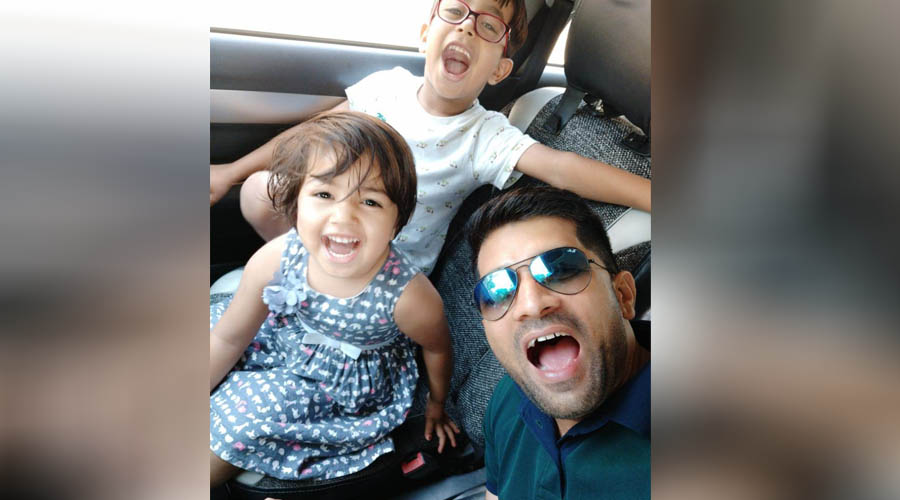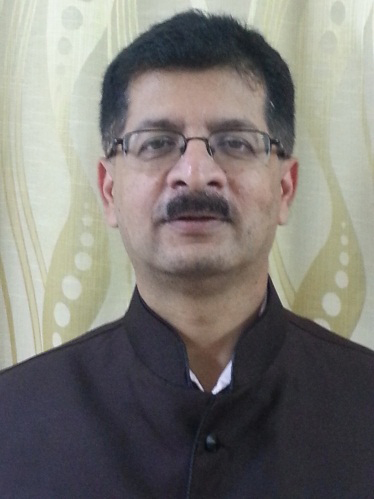Relationship Development Intervention program for children with Autism Spectrum Disorder
By: Dr. Suneel Godbole
Relationship Development Intervention program (RDI®) is a next generation approach to autism and developmental disability intervention that is based on the latest scientific research into the human brain. Our brain has the unique ability to adapt to any challenge; develop new neuronal wiring – this happens only when brain is stimulated in right way and right time. This ability of brain is called as ‘Neuroplasticity’ and is at its best in early years of life but persists even in adulthood, including those of people with developmental disabilities.
The RDI program was developed by the psychologist Steven Gutstein in the 1990s. Two books of RDI-based activities as well as a book explaining the background ideas were published in 2002. Then over the time this became a proprietary program which is managed by only trained professionals across the world. Though parental anecdotes are encouraging; this program is not yet backed by extensive research.
Relationship Development Intervention (RDI) program
RDI is a parent-based, cognitive-developmental approach, in which primary caregivers are trained to provide daily opportunities for successful functioning in increasingly challenging dynamic systems.
Relationship Development Intervention (RDI) program teaches parents how to guide their child to develop reciprocal relationships, while addressing key core issues such as motivation, communication, emotional regulation, episodic memory, rapid attention-shifting, self-awareness, appraisal, executive functioning, flexible thinking and creative problem solving.
At the core of the program, parents learn how to perceive and scaffold opportunities for their child to respond in more flexible, thoughtful ways to novel, challenging and increasingly unpredictable settings and problems. Parents are trained to incorporate these opportunities into their lifestyle, so that each day involves frequent, carefully framed opportunities presented seamlessly into the child’s routine.
Basis of RDI: Dynamic Intelligence
According to Prof. Steven Gutstein; child with Autism Spectrum Disorder may be good at understanding simple linear mathematical relations but they lack the neurological linkages to understand different, unpredictable relationships between him/her-self, people and environment. This concept of thinking and reacting differently in different situations is ‘Dynamic intelligence’.
Before understanding ‘Dynamic Intelligence’; let’s know what ‘Static Intelligence’ is. By definition; static means ‘unchanging’. Two times two will always equal four; when sun rises it is always the day and so on. But everything is not as fixed or static as these examples are.
In day to day life; we face many unexpected events like – Unexpected change to familiar routines, unexpected omission of a routine activity, changes to activities without preparation, stopping a task before it is finished, anticipating an event and encountering another, interruption during a highly favored activity, planning for things that might go wrong, adapting when original plans don’t work out. Most of the time; a normal individual quickly understands these deviations and molds his/her responses to suite the condition. This flexibility is referred to as ‘Dynamic Intelligence’.
Dynamic Intelligence is an ability to think flexibly, take different perspectives, cope with change and process information simultaneously. This helps an individual to connect with different people, in different settings and react differently yet appropriately.
Children with autism spectrum disorder; due to neural under-connectivity; lack this ‘Dynamic Intelligence’ and hence have a ‘rigid and static’ view of the world. This explains the characteristic features like poor eye contact, dislike of change, poor communication and remaining in his world.
Dynamic Intelligence and Relationship Development Intervention (RDI)
A baby is born with potential to learn its ways to deal with the environment around. But the neurological hard-wiring completely depends upon how the parents of the baby communicate with the baby – smiling, caressing, cooing and many more verbal and nonverbal cues. This ever-changing ‘Dynamic Relationship’ between the parents and the child in early years of life is the ‘Central Theme’ of Relationship Development Intervention.
Brains of children with Autism Spectrum Disorder are ‘Differently wired’ and hence they have difficulty in understanding these dynamic relationships. This makes their learning and emotional reciprocity difficult; which in turn frustrates their parents in their steep challenge to teach these children.
Relationship Development Intervention (RDI) program aims at this crucial problem with a firm belief that the pathways in the brain can be changed. Essentially, the cognitive skills that were missed due to autism and other developmental disorders can be learned. Parents and their children can be “guided” through the journey of development in a slow and steady fashion. It is possible to build dynamic intelligence!
Relationship Development Intervention (RDI) program is a parent based, well-structured program which helps the parents to act as ‘scaffolding’ or guiding system with various roles to play at different levels of development. Sometimes parents may act as ‘initiators’ – to provide new opportunities to learn, or ‘supporters’ – when the child attempts to learn his ways, or even as ‘soft landings’ – when the child fails to achieve a skill.As against the experience with normal children, the parents of children with autism face multi-fold challenges like poor/no emotional feedback, nothing productive to look at and occasionally most unpredictable, socially non-acceptable response. This starts a whole spiral of disappointment, failure, confusion and fear, which causes the relationship between the parent and the child to break down.
Relationship Development Intervention (RDI) program focuses on developing dynamic intelligence and growth seeking drive for whole family. The well trained certified RDI therapist develops a detailed program for each family with following objectives as the main frame for the program.
Objectives of RDI
- Emotional Referencing: the ability to learn from the emotional and subjective experiences of others
- Social Coordination: the ability to observe and control behavior to successfully participate in social relationships
- Declarative Language: ability to use language and non-verbal communication to express curiosity, invite others to interact, share perceptions and feelings and coordinate your actions with others
- Flexible Thinking: the ability to adapt and alter plans as circumstances change
- Relational Information Processing: the ability to put things into context and solve problems that lack clear cut solutions and have no “right and wrong” solutions
- Foresight and Hindsight: the ability to think about past experiences and anticipate future possibilities based on past experiences
How Relationship Development Intervention (RDI) program differ from other therapies like ABA, Verbal Behavior, Pivotal Response Therapy etc.
Relationship Development Intervention (RDI) program is not a therapy and does not simply seek to mask the condition with scripted conversations or rehearsed behaviors. RDI allows for neuro-cognitive changes to occur over time that provide the individual with the skills needed to navigate life’s challenges on their own. By developing this capacity for dynamic thinking, it tries to open the door to the possibility of a greater quality of life that includes: reciprocal communication, genuine friendships, confident, independent living, prolonged relationships and meaningful employment.
Relationship Development Intervention program (RDI Connect) includes an intensive parent training component designed for both parents’ involvement from the beginning and real life coaching that takes place in the home setting with the whole family. The goal isn’t to turn family members into therapists, but rather to guide them to develop new ways of thinking, perceiving and acting to know how to best use their precious time in facilitating the child’s mental growth.
RDI program is a step-wise approach.
Here is an example for a simple program design –
- At first parents may limit how much they use spoken language. This encourages the child and parent to focus on eye contact and non-verbal communication.
- As the child’s abilities increase, the goals and teaching plan change to meet his/her needs.
- Next, the child begins spending time with a peer who shares similar social and emotional skills. This may be referred to as forming a “dyad” (meaning two children).
- Gradually, additional children join the group. They meet and play in a variety of settings with the guidance of a parent or therapist. This allows them to practice forming and maintaining relationships in different contexts.
Relationship Development Intervention program (RDI Connect) believes that making lasting, meaningful and lifelong changes begins at home with the child’s parents first, and that the remediation process should take place amidst each family’s unique culture and relationships.
Closing remarks
Among many intervention programs that are emerging to improve the quality of life of children with Autism Spectrum Disorder and their family; RDI appears a ray of hope as it is ‘home based, child centered and most importantly works on positive child-parent relationship!
Author:
Dr. Suneel Godbole
Developmental Pediatrician Address of correspondence: Dr. Suneel Godbole, Chiranjeev Child Diet & Development Centre, 1114, Sadashiv Peth, Pune 30, Ph (020)24486744, email: suneel.godbole@gmail.com

